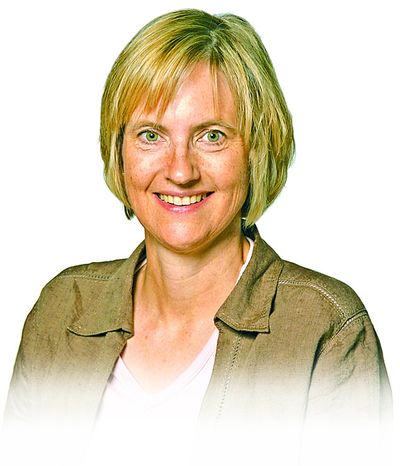ALS forum puts patients at forefront

When it comes to ALS, no one’s a better expert than a person living with it.
That’s the idea behind a Riverpoint Campus forum next week where patients will become the teachers, with students working toward a variety of health professions sitting in the audience.
“They’re the ones living every single day with this disease,” said Keleigh Kreilkamp, a graduate student in speech-language pathology who’s helping to organize the event. “We’re not the experts by any means.”
The public also is invited.
ALS, a progressive neurodegenerative disease that gained online fame over the summer thanks to the ALS Association’s Ice Bucket Challenge, affects nerve cells in the brain and the spinal cord. As motor neurons die, people with ALS lose the ability to control their muscles; some become completely paralyzed. ALS, or amyotrophic lateral sclerosis, eventually leads to death.
The forum aims to show how the disease affects all aspects of a person’s life – an approach that reflects the health-sciences campus’s emphasize on collaborative medicine, said WSU’s Nancy Potter, who teaches graduate courses on speech and swallowing disorders that result from neurological conditions.“If somebody has an ear infection, they don’t need to see the whole realm of medical professionals,” Potter said. “But if they have a complex disease like ALS … they need a team approach. They don’t need to be bounced from provider to provider.”
Riverpoint houses a dozen health-sciences programs, with the campus shared by Washington State and Eastern Washington universities and the University of Washington.
“Everybody treats ALS,” Potter said.
About six patients are expected to participate, recruited through the ALS Association’s local chapter. They’ll answer questions about their early symptoms and diagnoses, including any initial misdiagnoses and how, exactly, they got the news of their disease. They’ll talk about the adjustments required in their daily lives: What’s their transportation like? Who helps them at home? And they’ll talk about the changes in their social lives. In light of the disease’s effects on patients’ ability to chew and swallow, for example, do they still go out for meals with friends?
For students, the opportunity to hear from patients makes case studies come alive, Potter said.
“It really does make a difference in your learning – it’s not just book learning anymore, this is a real person,” she said.